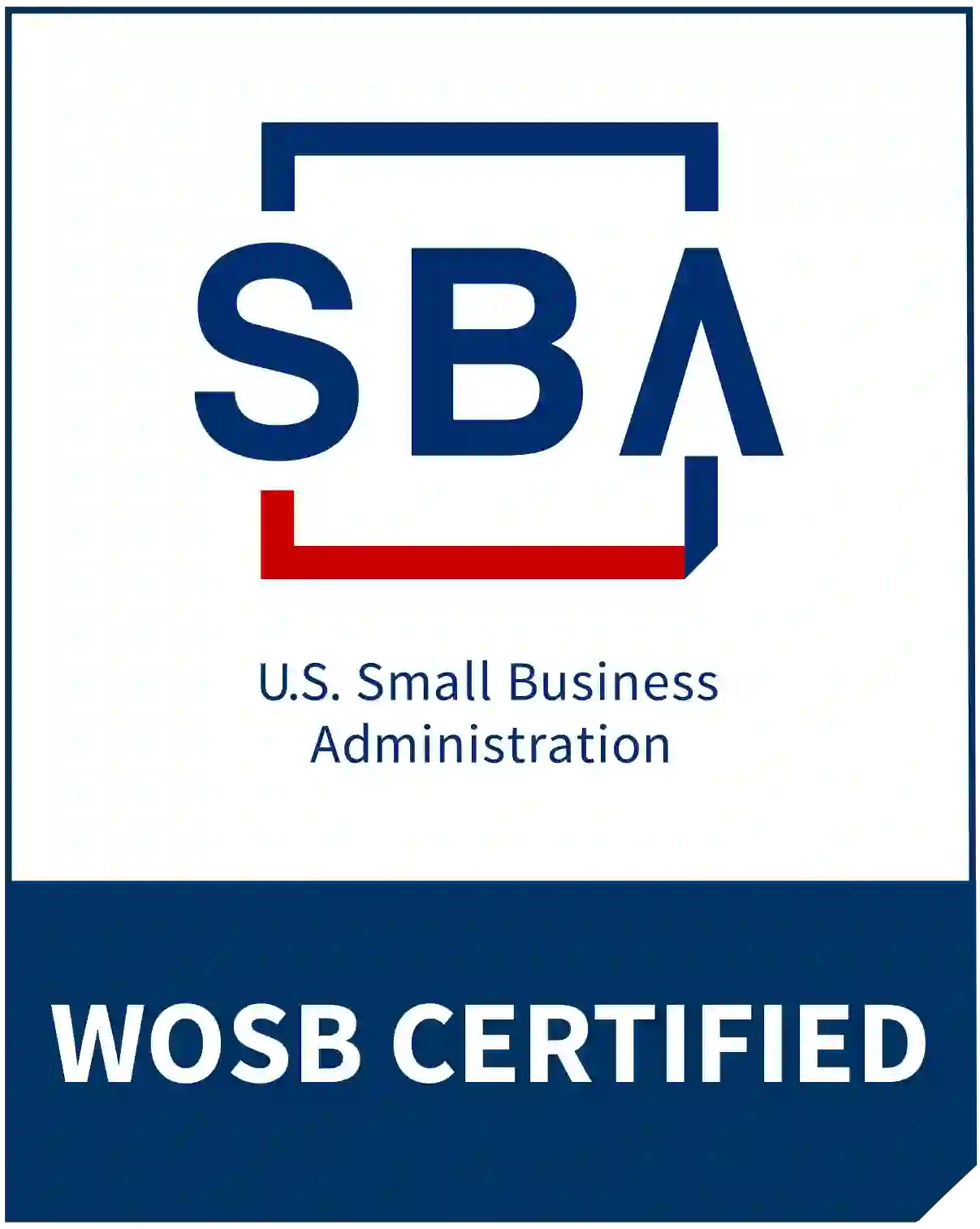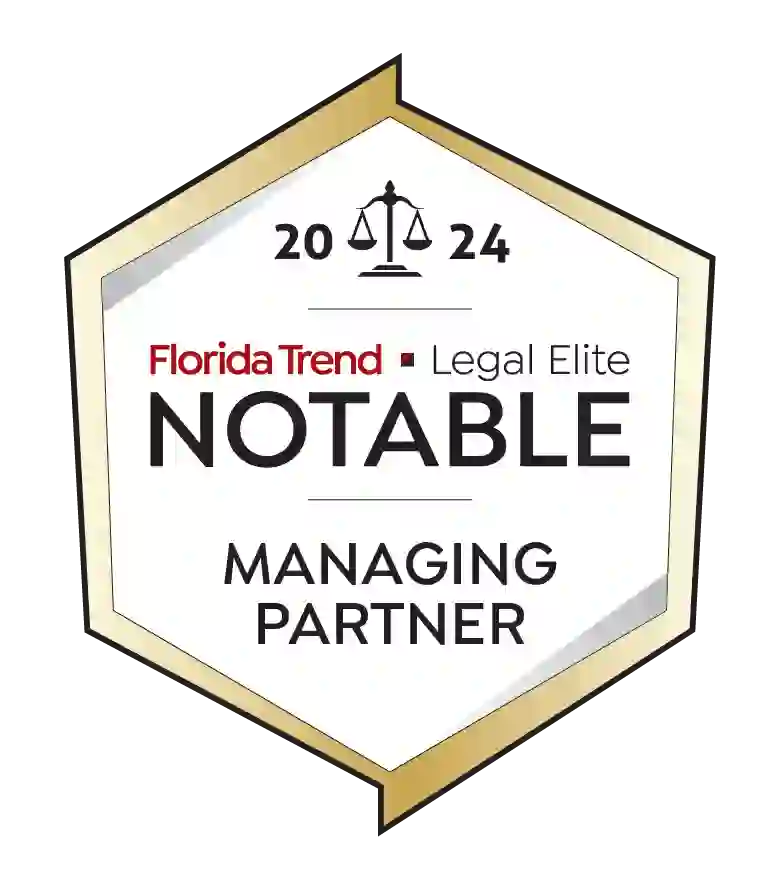
I was looking for an attorney to help me with a Family Law case, because I had an ongoing Paternity case that was not getting resolved at all and I didn't feel that my previous attorney was understanding my needs and concerns. I had my consultation with Marivette Rivera and ... Read More
Diego Barahona

I had a great experience with Marivette Rivera and the team during my custody case. The initial consultation was incredibly helpful. Throughout the process, they were professional, responsive, and genuinely caring. I highly recommend this firm for any family related case. ... Read More
Henry Reyes

I had a consultation with them about my divorce. They provided clear advice and really took the time to listen to my concerns. Their support made a stressful process much easier, and I felt confident moving forward with their guidance. I highly recommend them for anyone going through a divorce. ... Read More
Gabriel Peña

If you’re ever looking for a divorce attorney, don’t look up further! The Florida Probate and Family Law Firm is the best at what they do - I don’t think I could’ve done without their help. Samah and her team are by far the greatest option in Florida State. Thank ... Read More
Allan Madrid

Whoever is in need for a family attorney I highly recommend this amazing team! They took my custody case with care, dedication and expertise. Thank you the attorney Krizia which assisted me in the initial consultation and explained the whole process and the attorney Mais who handled my case and ... Read More
Ivan Hernandez

I was impressed by how clearly and thoroughly they explained every step of the custody process. Legal stuff is be really confusing, but these attorneys made it all so simple and kept me in the loop. They were so transparent and dedicated, and it made me feel super confident in ... Read More
Bryan Bardales

I was referred to the office and have a consultation with Valeska Chacón, the person that scheduled me was great and Valeska was wonderful, she is professional and kind, I needed to do a modification to my Final Judgement regarding the child support amount and parenting plan. Valeska listened and ... Read More
Zelin Madrid Franco

When I called the firm the first time I was confused on what the process for a Family Law case was, especially to modify a parenting plan and request child support, I had a consultation with the attorney Krizia Toledo and she was so kind and understanding, she provided me ... Read More
Xochitl Velásquez

The best law firm I have ever found in my life. They sincerely offer impeccable customer service. From my first call to ask if they could take my case, Miss Scarleth kindly explained to me what I had to do and assigned me the best lawyer to obtain custody of ... Read More
Angel Onasis Carrasco Martinez

The lawyers were attentive and very professional at all times, especially Mais. They helped us with the divorce and custody process, explaining each step clearly and relieving our stress at such a delicate time for both me and my children. ... Read More
Katania Sierra

Thanks for the prenup! It is important for my fiance and I to protect ourselves and our little things, it's always good to be safe than sorry. I want to thank my attorney Yudy for making things so much easier for me and guide me through the entire process. 10/10 ... Read More
Lourdes Valladares

Great attorneys. i had a family issue that i had questions about and i called over and spoke to jose who answered everything regarding my case. Scarleth scheduled the appointment the same day. i really like them and recommend their team for any family issue ... Read More
Liliann Joba

Samah is the best in states, she got to the point where she explains all the details after she listens to your issue. And she answered all of my questions, and she was very detailed. I highly recommend her to be in your side all the time especially on the ... Read More
Haithum Alqahaf

The best law firm ever! Samah is such an incredible attorney. She was there every step of the way to help me with my legal issues. If you’re ever in need of legal assistance, this is the place to go to. I HIGHLY RECOMMEND!!!! ... Read More
Deanna Darwish

It was a pleasure working with Samah! Not only is she an excellent attorney, but it is evident that she is extremely passionate about the work she and her firm do. My parents contacted her about a legal matter, and she made sure to answer all of their questions and ... Read More
Remy K.

This law firm is the best in town! Very professional and quite helpful. They're always available, responsive, and on top of every single step. Samah deals with every case diligently and efficiently. Highly recommend this firm. Seriously, no need to look around, they're the best! ... Read More
Hanin Kamal

The Mirimar location one of the best Family law offices I have been to. They care about me receiving my rights for my kids and helping me establish a plan so I was able to move to another state and be happy. I appreciate them truly l. ... Read More
Ralph Wiley

The Florida Probate & Family Law Firm represented me in both divorce and child support proceedings. Never once did I doubt I was in the best possible hands. Phone calls were returned without delay, very knowledgeable and give you the upmost feeling of trustworthiness . I'd recommend this Firm for ... Read More
Giovanni

All I can say is thank you, this law firm helped me through a rough time in my life and they made fighting for custody the best experience possible. They know your worth and they will fight for it as if it was their kid. Just know you are in ... Read More
Carlos Javier Jr

I had a fantastic experience with this firm. The team of attorneys was incredibly knowledgeable, professional, and attentive to my legal needs. From the initial consultation with attorney Jose to the resolution of my case, they provided excellent guidance and support. ... Read More
Corey Wright

"Their in-depth understanding of family law and commitment to their clients' best interests were evident throughout my case. They provided valuable guidance and support, leading to a favorable resolution." ... Read More
Carlos Fonseca

In child support matters, this law firm is a trustworthy partner. Their attorneys understand the financial intricacies involved and work diligently to protect the rights of both parents. ... Read More
Alicia Morales

We have trusted Florida Probate & Family law with several referrals on complex Trust litigation, Probate and Family law matters and they have always handed each client with excellence, professionalism and respect. We highly recommend their services ... Read More
Robinson Casey

I had the privilege of working with recently Samah, and I cannot speak highly enough of her exceptional service and expertise. From start to finish my experience with her team was truly outstanding. ... Read More
Kal Kader

Attorney Valeska Casanova- Chacon is an extraordinary human being and professional. She worked on my case from day one, willing to do what was best for me and my family. She is respectful, answered quick to all my questions and advised me with the best solutions for my case. I ... Read More
Melissa Castaneda

I had the pleasure of speaking with Samah from The Florida Probate & Family Law Firm regarding a family situation. Her expertise, professionalism, and compassionate guidance were exceptional, and I would highly recommend their services. ... Read More
Haneen Abuzarqa

I recently had the pleasure of working with The Florida Probate & Family Law Firm, and I wanted to share my positive experience. From the moment I contacted them, I was greeted with kindness and professionalism. The whole team was incredibly knowledgeable and took the time to understand my specific ... Read More
Anthony Avila

I contacted the firm for a child custody case established in another state. I had the pleasure of having Ms. Valeska Chacon assigned to my case. She is a motivated professional who quickly assessed the situation and developed an effective action plan. She executed the plan diligently, while she and ... Read More
David Tamayo

Highly recommended!! Samah, Jose, and the entire team is fantastic. I have worked with the firm in representing my most valued clients and they have been responsive, effective, and produced great results. Thank you helping my clients feel at ease and making the planning process a breeze! ... Read More
Kristina Wilson

The office was exceptional in every way. From calling and getting basic information on procedures , to sending forms in, to actually having the appointment , each step was clearly explained to me and so professional ! Everyone in the office was very kind and so helpful to meeting the ... Read More
Noor Masri

I worked with Samah and her team, to anyone who needs a probate or family law attorney this is it. Lawyers returning my calls & emails promptly is important to me. They’re very organized; I had a consult with Samah and she listened to what I wanted including giving her ... Read More
John Smith

Best lawyers I've met, they were able to settle a fair divorce for both parts. Thanks for helping out in this situation, you were the best ones for the job. Hopefully we're able to continue working together 'cause definetly you are the best. ... Read More
Ricardo Zapata

Navigating the storm of divorce is never easy, but with this law firm, it became a manageable journey. Their legal acumen, combined with empathy, ensures clients receive the support they need during a challenging time ... Read More
Melany Moncarela

Attorney Krizia Toledo and the entire team were very professional. They took care of my case and gave me clear guidance. It is not the cheapest option but you are in good hands. ... Read More
Ricardo Abend Van Dalen

I am grateful for the personalized attention my child custody case received from this firm. Their dedication to securing parental rights is evident in the thoroughness of their representation ... Read More
Andrea Moncada

I’ve never had to deal with legal issues and Sam was excellent. Her office is well organized, responsive, and cares. Her paralegal and associates follow up and make sure that you understand how to fill out the initial docs and answer any questions you may have. I spoke to Sam ... Read More
Alaa-Aldeen Abukhdair

Sam and her team are great. We had a family emergency and they were able to help us after hours and the weekend to ensure everything was taken care of. Another firm would not have accommodated it but we were lucky to find a team that really cared and took ... Read More
Matthew

Super talented, professional, they know their job. Would never go to anyone only to the Florida Probate & Family Law firm exelent job Thank you so much ... Read More
Irma Haddi

This law firm was amazing! They helped me with a family law case and they did a wonderful job. Very attentive, professional and kind. I was going through a very hard time in my life with my divorce after being married for 27 years, but they were so kind, understanding, ... Read More
Carolina Flores

Sam and her team did a great job in my child support case! She really values her clients needs and her staff were friendly and helpful. They were wonderful to work with. ... Read More
Laura Ochoa

Sam and her staff are amazing. They are truly transparent throughout the entire process and make you feel valued at all times, from the beginning to the end. I would highly recommend Sam to anyone looking for professionalism and being assisted like family and not like another number in your ... Read More
Victor A.

From the beginning I felt welcomed. The intake team scheduled my call and listened carefully. Great staff, very communicative. They always take my phone calls and respond to my emails the same day. If you’re looking for an attorney that cares and is dedicated to helping you, you’ve come to ... Read More
Connie Mei

Samah and her team are wonderful. They care so much for clients and follow up to make sure you are okay. My husband and I went to discuss our planning and to make sure our child would be taken care of in case of emergency. She walked us through everything. ... Read More
Linda Andreatta

Thank you, Samah and team for the great job done. I really needed the help because I was in a tough situation in life and they delivered. I don’t know what I would have done without them. Best family attorneys in Florida! ... Read More
Alaa Betouni

Best firm in Miami! So helpful and honest. They really are on their A game! I was referred by my real estate agent and I couldn’t be happier with my decision to bring on Samah and her team. They listened carefully in every meeting we had and helped plan a ... Read More
Leah Valdes

I wholeheartedly recommend This Law Firm to anyone seeking legal representation. Their commitment to excellence, integrity, and client satisfaction makes them a top-notch law firm that you can trust with your most critical legal matters. ... Read More
Reem Kader

Very helpful with her advice. It’s definitely worth paying for their consultation. They helped me with a family matter. They do not waste time and get down to it. I was feeling very nervous and lost before calling in and now I have direction and know what to do, I ... Read More
Ibrahim Abukhdair

Sam and her team are excellent, highly responsive, and very skilled. I highly recommend them for any family law or probate legal issues. They will walk you through the process and take the stress off your plate. I regularly refer Sam and her firm cases and my referrals are always ... Read More
Thomas Graham

My experience with Valeska Casanova-Chacon in family court was excellent. Her skill, professionalism, and genuine concern for my family was wonderful. She handled all legal concerns with ease and protected our interests. Her commitment and help offered me (as a mother) peace of mind throughout the process. Valeska will fight ... Read More
AR.

I recently had the pleasure of speaking to Melissa, who was so kind and professional. She helped answer all my questions and direct me to the correct people. I am so happy with the work that is done at The Florida Probate & Family Law Firm in Coral Gables. ... Read More
Jocelyn Gonzalez

If you're searching for quality representation The Florida probates and family Law Firm would be the best choice. Samah would go above and beyond for her clients and is the rare attorney who takes the time to learn all the facts of your case. I couldn't be more grateful for ... Read More
Areej Yousef

Extremely professional and dedicated to her clients. Dealing with Samah has been a great pleasure. She responds promptly to inquiries and takes the time to explain the process so that we are aware of upcoming events. With her guidance all my questions were answered and I knew exactly what needed ... Read More
Balkino Buddie

Called for an initial consultation and I spoke with a young lady called Scarleth and she was very attentive and very respectful. She listened to me vent. She was truly a great first impression of this firm. Everything else ran so smooth! ... Read More
Miguel Lumbreras

I have dealth a couple of times with this law firm and would recommend it highly. Unlike others in the field, they take the time to understand your needs in order to address them professionally and efficiently. ... Read More
Felipe Cuza

I had a case that started simple, and became a horrible nightmare. This firm and Ms. Shapiro guided me with a steady hand and compassionate counsel through dark times. I can’t thank them enough. Highly recommend them. ... Read More
Thomas Claiborne

This firm handled my trust case efficiently. Their outstanding attention to detail were invaluable. I am very satisfied with the results obtained. ... Read More
Fernando Lainez

I called to get a consultation with an attorney for a family law case. The intake process to get you scheduled is very easy and the person was very helpful and patient with all my questions. The consultation was very helpful, the attorney went through my case with me and ... Read More
Jay ZK

It was a pleasure working with this firm. Samah is an excellent attorney who is passionate about the work she does. Her fellow attorneys and staff were also extremely helpful through the whole process. The Florida Probate and Family Law Firm is an exceptional firm who truly cares about and ... Read More
Danni Mena

Samah was so friendly and extremely professional. She was able to precisely answer questions we had and point us in the right direction. I felt confident I was getting the same advice she would have given to a family member of hers. I’d highly recommend her for professional and legal ... Read More
Katie Young

My wife recently absconded with our notice to California in hopes keeping my child away. Samah & the Florida probate & Family Law Firm stood by my side and did an outstanding job! HIGHLY RECOMMEND SAMAH & THIS LAW FIRM! ... Read More
Kane Davis

I highly recommend Samah and her team to anyone who needs a probate or family law attorney. My experience with them was wonderful from start to finish; they were always great at returning my calls, responding to my emails. They’re very organized; I had a consult with Samah where she ... Read More
Ramie AlTawil

Let me start off by saying that I have nothing but AMAZING things to say about this law firm!! After firing my previous attorney (which was an absolute disaster), we decided to hire Florida Probate. Best decision ever! Krizia and Brenda listened to our needs, were knowledgeable and have executed ... Read More
Georgette Robaina

Extremely professional and dedicated to her clients. Dealing with Samah has been a great pleasure. She responds promptly to inquiries and takes the time to explain the process so that we are aware of upcoming events. With her guidance all my questions were answered and I knew exactly what needed ... Read More
Kevin Shaw

Had a consultation with Samah over the phone. She was so professional and extremely knowledgeable with the law. She guided me on what to do and how to proceed with my case. Her confidence and calmness won me over. She truly cares about her clients and is aggressive for positive ... Read More
Atheer Naif

We had a great experience with Samah and her staff. She was very transparent in what the process was going to be and the possible outcome. We are glad everything worked out well in the time that was initially estimated. We consulted with other firms before and they were all ... Read More
Franco Arias

Great firm with a great team. Im brazilian and they were very easy to help me and very kind. My marital issues were resolved beczuse of the advice of the firm. Highly recommend 👌 ... Read More
Marcos Nascimento

Samah and her team were great. They helped us through a difficult legal matter and my wife was extremely impressed with the entire intake team of Yasmin, Beatriz, and Danielle. The attorneys and paralegals are also wonderful and truly care. Look no further. ... Read More
Ultra Beauty Supply

The Florida Probate & Family Law Firm is dedicated to helping families transition through some of the most difficult life events. The attorneys are skilled at helping develop a strategy that allows their clients to protect what matters most - peace of mind, relationships, hard earned assets. ... Read More
Jennifer Hargrave































